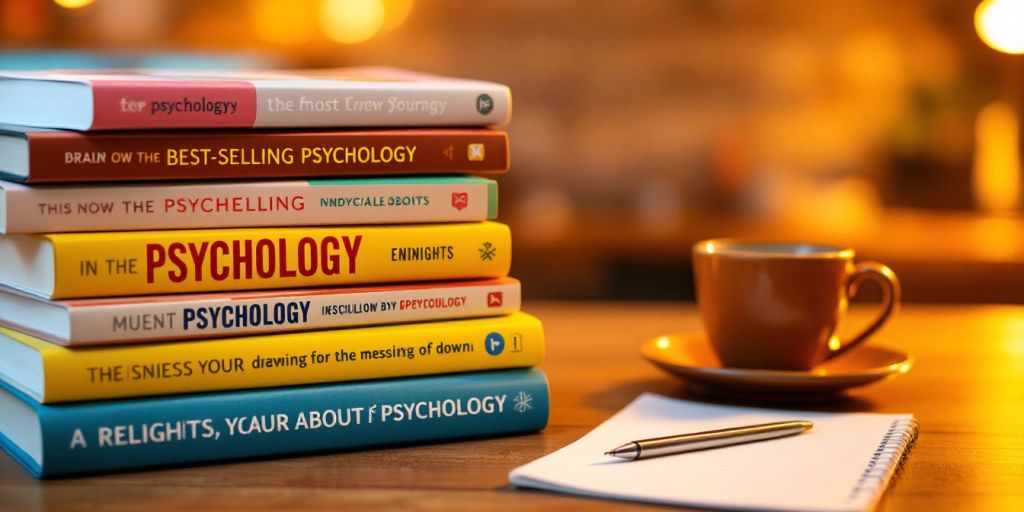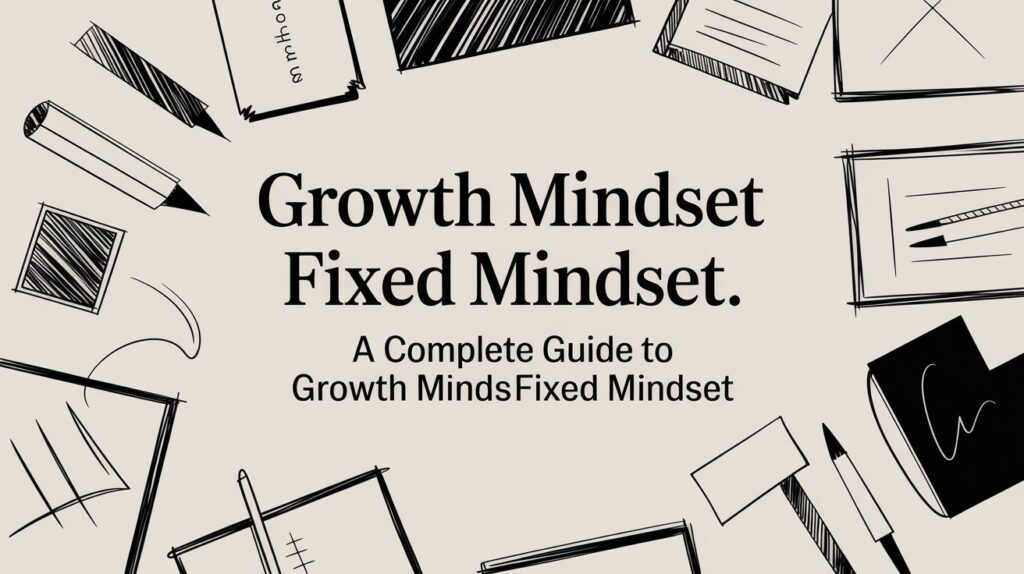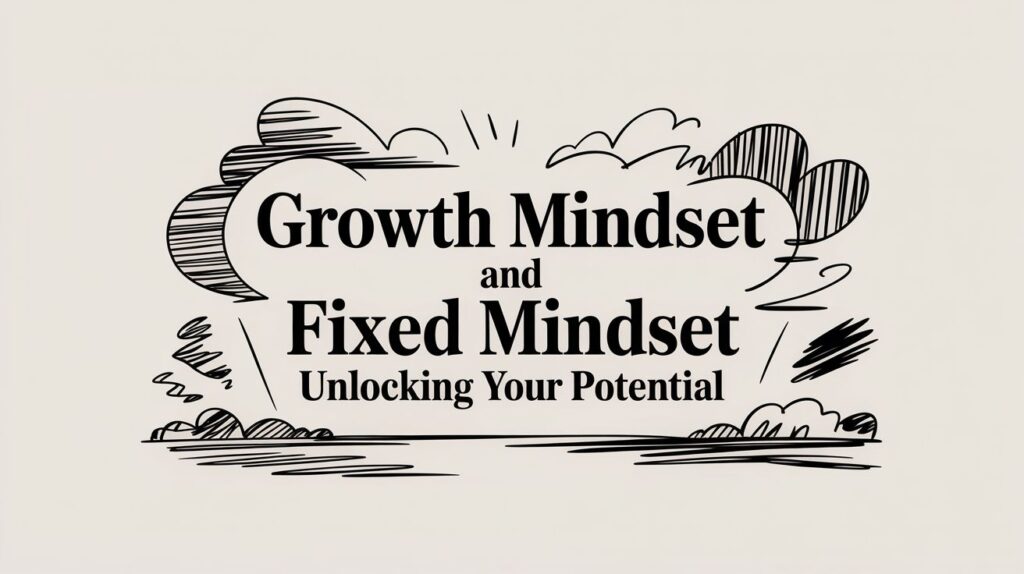Exploring the Best Selling Books About Psychology: Insights and Reviews

In this article, we will explore some of the best selling books about psychology that have captivated readers and shaped our understanding of the human mind. These books not only provide valuable insights into psychological concepts but also reflect our society’s growing interest in mental health and personal development. Whether you’re a curious beginner or a seasoned expert, there’s something for everyone in this collection of influential works.
Key Takeaways
- Best selling books about psychology help readers understand themselves and others better.
- These books can influence how people think about mental health and personal growth.
- Classic psychology texts still hold relevance today, providing timeless wisdom.
- Modern psychology books often incorporate technology and current trends.
- Self-help psychology books combine research with practical advice for everyday life.
Understanding the Appeal of Best Selling Psychology Books
Why Psychology Books Are Popular
Psychology books attract many readers because they help us understand ourselves and others. They offer insights into human behavior, emotions, and thoughts. People are curious about why we act the way we do. Here are some reasons for their popularity:
- They provide practical advice for everyday life.
- They help in personal growth and self-improvement.
- They explain complex ideas in simple terms.
The Impact of Best Sellers on Readers
Best-selling psychology books can significantly influence readers. They often shape how we think about mental health and relationships. These books can:
- Change our perspectives on common issues.
- Encourage discussions about mental health.
- Inspire readers to seek help or make changes in their lives.
How These Books Shape Public Perception
The success of certain psychology books can alter public views on various topics. For instance, books like Yes!: 50 Scientifically Proven Ways to Be Persuasive reveal effective strategies that can be applied in both work and personal life. This can lead to:
- Increased awareness of psychological concepts.
- A shift in how society views mental health.
- Greater acceptance of psychological practices in daily life.
Understanding psychology through best-selling books not only enriches our knowledge but also empowers us to navigate our lives more effectively.
Exploring Influential Authors in Psychology Literature
Key Contributors to the Field
Many authors have made significant contributions to psychology literature. Here are a few notable figures:
- Sigmund Freud: Known as the father of psychoanalysis, his theories on the unconscious mind have shaped modern psychology.
- Carl Jung: A pioneer in analytical psychology, Jung introduced concepts like the collective unconscious and archetypes.
- B.F. Skinner: A leading behaviorist, Skinner’s work on operant conditioning has influenced education and therapy.
Notable Works and Their Impact
Several books have left a lasting mark on the field of psychology. Here are some key titles:
| Title | Author | Year | Impact |
|---|---|---|---|
| The Interpretation of Dreams | Sigmund Freud | 1899 | Laid the groundwork for psychoanalysis |
| Man and His Symbols | Carl Jung | 1964 | Explored the importance of symbols in the psyche |
| Beyond Freedom and Dignity | B.F. Skinner | 1971 | Discussed the implications of behaviorism |
The Evolution of Psychological Writing
Psychological writing has evolved over the years, reflecting changes in society and science. Key trends include:
- From Theory to Practice: Early works focused on theoretical concepts, while modern texts often emphasize practical applications.
- Interdisciplinary Approaches: Contemporary authors frequently draw from fields like neuroscience and sociology.
- Accessibility: Many recent books aim to make complex ideas understandable for the general public.
Psychology books not only inform but also inspire readers to explore their own minds.
In summary, influential authors in psychology have shaped the way we understand human behavior and thought. Their works continue to resonate, making psychology a vital field of study for many.
Diving into Classic Psychology Best Sellers
Timeless Works That Continue to Inspire
Classic psychology books have a unique ability to resonate with readers across generations. Some of the most influential titles include:
- The Interpretation of Dreams by Sigmund Freud
- Man’s Search for Meaning by Viktor Frankl
- The Psychopath Test by Jon Ronson
These works not only provide insights into human behavior but also reflect the cultural contexts of their times.
The Enduring Relevance of Classic Texts
Even today, these classic texts remain relevant. They help us understand:
- The foundations of psychological theories
- The evolution of mental health practices
- The historical context of psychological concepts
These books continue to shape our understanding of the mind.
Lessons Learned from Historical Perspectives
Reading classic psychology books offers valuable lessons, such as:
- The importance of empathy in understanding others
- The impact of societal norms on mental health
- The evolution of psychological thought over time
Classic psychology literature serves as a mirror reflecting our past, helping us navigate the complexities of the present.
In summary, classic psychology best sellers not only provide timeless insights but also encourage readers to reflect on their own experiences and the world around them.
Analyzing Modern Psychology Best Sellers

Recent Trends in Psychology Literature
In recent years, psychology books have gained immense popularity. Readers are drawn to topics that explore the human mind and behavior. Some key trends include:
- Focus on mental health: Many modern books address mental health issues, providing insights and coping strategies.
- Integration of technology: Authors are incorporating technology’s impact on psychology, such as social media’s effects on self-esteem.
- Diverse perspectives: There is a growing emphasis on including voices from various backgrounds, enriching the field with different viewpoints.
Innovative Ideas in Contemporary Works
Modern psychology books often present fresh ideas that challenge traditional views. Some notable concepts include:
- Neuroscience insights: Understanding how brain functions relate to behavior.
- Mindfulness practices: Techniques that promote mental well-being and stress reduction.
- Behavioral economics: Exploring how psychological factors influence economic decisions.
The Role of Technology in Modern Psychology Books
Technology has transformed how psychology is studied and shared. Here are some ways it plays a role:
- Online resources: Many authors provide supplementary materials online, enhancing the reading experience.
- Interactive content: Some books include QR codes linking to videos or exercises.
- Social media discussions: Readers can engage with authors and other readers through platforms like Twitter and Instagram.
In today’s fast-paced world, understanding psychology is more important than ever. Readers seek knowledge that helps them navigate their lives and relationships.
The modern psychology landscape is vibrant and ever-evolving, with best sellers reflecting the changing interests and needs of readers. As we explore these works, we can see how they not only inform but also inspire personal growth and understanding.
The Intersection of Psychology and Self-Help
How Psychology Books Aid Personal Development
Psychology books play a significant role in helping people grow and improve their lives. They offer insights into human behavior and provide tools for self-reflection. Here are some ways these books assist in personal development:
- Understanding Emotions: They help readers recognize and manage their feelings.
- Building Relationships: Many books teach effective communication skills, which are essential for healthy relationships.
- Enhancing Self-Awareness: Readers learn about their own behaviors and thought patterns, leading to better self-understanding.
Blending Scientific Insight with Practical Advice
The best self-help psychology books combine research with real-life applications. This blend makes the information relatable and actionable. For example, books like Insight: Why We’re Not as Self-Aware as We Think provide valuable lessons on self-awareness through real-life stories and scientific research. This approach helps readers apply psychological concepts to their daily lives.
Popular Self-Help Psychology Books
Here are some well-known self-help psychology books that have made a significant impact:
- The Happiness Hypothesis by Jonathan Haidt
- Authentic Happiness by Martin Seligman
- Thinking, Fast and Slow by Daniel Kahneman
Self-help psychology books empower individuals to take charge of their lives and make positive changes. They serve as guides, offering strategies to navigate life’s challenges and improve overall well-being.
The Influence of Psychology Books on Popular Culture

Psychology Books in Media and Entertainment
Psychology books have a significant presence in various forms of media, influencing movies, TV shows, and even music. They often provide insights into human behavior that resonate with audiences. For example:
- The Psychgeist of Pop Culture explores how certain shows create intense fandoms.
- Movies like A Beautiful Mind and Good Will Hunting draw heavily from psychological themes.
- Many popular songs reference psychological concepts, making them relatable to listeners.
Cultural Phenomena Stemming from Best Sellers
Best-selling psychology books often spark cultural trends and discussions. They can:
- Shape public understanding of mental health.
- Influence social movements focused on well-being.
- Create buzz around psychological theories, leading to further exploration in academic and casual settings.
The Role of Psychology Books in Shaping Trends
Psychology books not only reflect societal interests but also help shape them. They:
- Introduce new ideas that challenge existing beliefs.
- Encourage readers to think critically about their own behaviors and those of others.
- Foster a greater awareness of mental health issues, leading to more open conversations.
Psychology books serve as a bridge between scientific research and everyday life, making complex ideas accessible to everyone. Their impact on popular culture is profound and lasting.
Critical Reviews of Top Psychology Books
Evaluating the Credibility of Popular Works
When it comes to psychology books, credibility is key. Readers should consider the author’s background, the research methods used, and the book’s reception in the academic community. Here are some points to keep in mind:
- Look for authors with relevant degrees or experience in psychology.
- Check if the book is based on peer-reviewed research.
- Read reviews from both professionals and general readers.
Common Criticisms and Praises
Many psychology books receive both praise and criticism. Here are some common themes:
- Praise: Engaging writing style and relatable examples.
- Criticism: Oversimplification of complex topics.
- Praise: Practical applications of psychological concepts.
- Criticism: Lack of scientific backing for certain claims.
The Importance of Critical Thinking in Reading
Reading psychology books can be enlightening, but it’s essential to approach them with a critical mind. Here are some tips:
- Question the author’s conclusions and the evidence provided.
- Compare different perspectives on the same topic.
- Reflect on how the information applies to your own life.
Understanding psychology is not just about absorbing information; it’s about questioning and applying that knowledge to better ourselves and our society.
In summary, while there are many best-selling psychology books that can help us understand human behavior, it’s crucial to evaluate their credibility and approach them with a critical mindset. This way, we can truly benefit from the insights they offer.
Final Thoughts on Psychology Books
In conclusion, diving into the world of psychology books can be both fun and enlightening. These books help us understand ourselves and others better. Whether you’re curious about why people act a certain way or want to improve your own life, there’s a book out there for you. From classic reads to new favorites, each book offers unique insights into human behavior. So, grab a book, find a cozy spot, and start exploring the fascinating world of psychology!
Frequently Asked Questions
What makes psychology books bestsellers?
Psychology books often become bestsellers because they help people understand themselves and others better. They provide insights into human behavior and emotions, which many find relatable and useful.
Who are some famous authors in psychology?
Some well-known authors in psychology include Daniel Kahneman, B.F. Skinner, and Malcolm Gladwell. Each has written influential books that explore different aspects of psychology.
What are classic psychology books?
Classic psychology books are timeless works that have significantly influenced the field. Examples include “Thinking, Fast and Slow” by Daniel Kahneman and “The Interpretation of Dreams” by Sigmund Freud.
How can psychology books help with personal growth?
Psychology books can guide personal growth by offering strategies for self-improvement, understanding emotions, and developing better relationships. They often combine scientific research with practical advice.
What role do psychology books play in pop culture?
Psychology books often influence pop culture by shaping how people think about mental health, relationships, and behavior. They can inspire movies, TV shows, and discussions in society.
Why is it important to critically evaluate psychology books?
Critically evaluating psychology books is important because it helps readers discern credible information from misleading claims. This ensures a better understanding of psychological concepts.








Responses